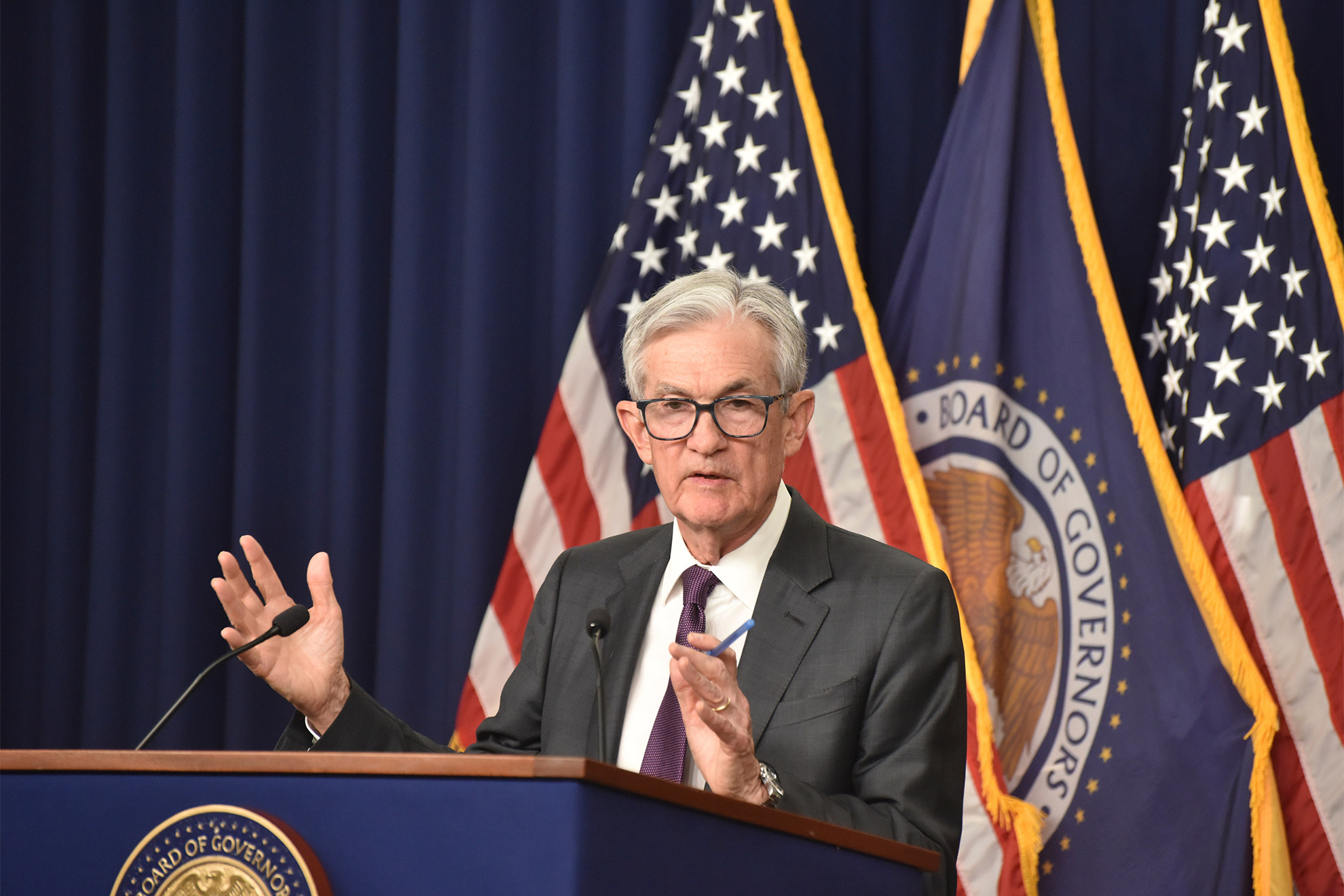Can Trump fire Powell? This pressing question has been at the forefront of discussions about Federal Reserve independence and the implications of Jerome Powell’s tenure as Chair of the Fed. President Trump’s contentious relationship with Powell has raised eyebrows, particularly as Trump has openly criticized the Fed’s interest rate policies, suggesting they could hinder economic growth. The potential for Jerome Powell’s dismissal brings a myriad of concerns regarding market reactions and the ongoing debate about interest rates, reflecting broader apprehensions over the Trump administration’s stance on economic policy. With such significant implications hanging in the balance, the dialogue surrounding the possibility of Powell’s dismissal remains as critical as ever, ensuring it stays in the minds of investors and policymakers alike.
The ongoing discourse surrounding whether Trump can dismiss the Federal Reserve Chairman touches upon essential themes of monetary policy governance and institutional autonomy. With Trump’s administration often at odds with Fed policies, particularly those instituted by Jerome Powell, observers are keen to understand how such a move could impact the broader economic landscape. Central to this discussion is the question of Federal Reserve independence, which plays a crucial role in determining the Fed’s ability to navigate challenges like inflation and market stability. The intricacies of the legal framework surrounding the removal of the Fed chair add another layer of complexity to the interest rates debate amid fears of potential market turmoil. As voices within the financial community weigh in on the ramifications of a possible Powell dismissal, the stability of the U.S. economy hangs in the balance.
Can Trump Legally Fire Jerome Powell?
The question of whether President Trump can fire Federal Reserve Chairman Jerome Powell is complex and rooted in both legal interpretation and constitutional authority. The Federal Reserve Act of 1913 allows for the removal of governors ‘for cause’, yet it remains unclear whether this clause applies to the chair of the Federal Open Market Committee (FOMC). In light of this ambiguity, the president could attempt to justify such a dismissal, potentially asserting an interpretation that the ‘for cause’ provision does not extend to the FOMC chair, particularly since Powell’s role carries a specific four-year term confirmed by the Senate. This legal grey area invites scrutiny from various experts, suggesting that while a president may have the power, the legality of such action would likely face challenges in courts.
Additionally, the implications of firing Powell could disrupt the Federal Reserve’s independence, a cornerstone of its ability to manage monetary policy effectively without political pressure. If Trump were to proceed with such drastic action, the markets could react negatively, fearing instability in an institution designed to operate autonomously. Analysts stress that undermining the Fed’s credibility could lead to heightened long-term interest rates, which would directly impact the economy by making borrowing more expensive. Therefore, while it is theoretically possible for Trump to fire Powell, the broader consequences of such a decision could lead to significant turmoil in economic environments.
Impact of Jerome Powell’s Policies on Economic Stability
Jerome Powell’s tenure as chair of the Federal Reserve has been pivotal in shaping monetary policy amidst a landscape marked by varying economic challenges, including inflationary pressures and pandemic recovery strategies. His approach to interest rates has sparked discussions regarding the balance between fostering economic growth and maintaining inflation targets. Powell has often faced criticism from President Trump, who advocates for a more aggressive rate reduction strategy to stimulate growth. This tension illustrates the ongoing debate over the effectiveness of Fed policies in navigating complex economic landscapes.
Furthermore, Powell’s decisions are crucial not only in managing current economic conditions but also in setting the stage for future market reactions to Fed policy changes. By maintaining a cautious approach to rate adjustments, Powell aims to ensure sustainable economic health rather than short-term boosts that could lead to instability. This delicate balancing act, however, paints a complex picture for markets, which are sensitive to perceived shifts in Fed policy direction. Markets are likely to react strongly to any signs of a departure from Powell’s measured approach or if there are significant personnel changes within the Fed.
Understanding Federal Reserve Independence
The concept of Federal Reserve independence is critical to its effective functioning as the nation’s central bank. This independence allows the Fed to make monetary policy decisions free from direct political pressure, which is essential for maintaining its credibility and ensuring effective economic governance. Any attempts by an administration to influence or remove Fed leadership could threaten this independence, raising concerns about the future of monetary policy and its alignment with broader economic goals. Recent history shows that central bank independence often correlates with better long-term economic outcomes.
Importantly, the independence of the Federal Reserve is designed to prevent the interference of short-term political agendas in its decision-making processes. This separation allows for a focus on long-term economic stability rather than succumbing to pressures that may favor immediate economic boosts at the expense of inflation concerns. Therefore, maintaining this autonomy is paramount, and any significant disruption, such as the firing of a sitting chair, could send shockwaves throughout both domestic and international markets, destabilizing investor confidence and economic forecasts.
Market Responses to Potential Changes at the Fed
Market reactions to potential changes in the Federal Reserve’s leadership can be immediate and pronounced. The stock markets often respond to speculation about the stability of interest rate policies, particularly in light of comments from influential figures such as President Trump. When there are indications that Powell may be ousted, markets tend to fluctuate based on concerns that the Fed might shift towards a more politically-driven monetary policy, impacting investor confidence and overall economic sentiment.
Investors closely monitor the Fed’s deliberations and any signals regarding future policy shifts, especially when the administration publicly questions the chair’s effectiveness. These market dynamics underline the critical role of the Fed in influencing interest rates, which affects everything from consumer loans to business investments. A fundamental fear among investors is that changing leadership could lead to a departure from established policies aimed at stabilizing long-term growth, prompting a reassessment of risk and a potential increase in borrowing costs.
The Interest Rates Debate: Powell vs. Trump
The ongoing debate surrounding interest rates highlights the stark differences between Powell’s and Trump’s economic philosophies. Trump’s push for lower interest rates is designed to encourage borrowing and fuel economic expansion, while Powell and many economists caution against aggressive rate cuts that may lead to inflation in the future. This disagreement exemplifies the tension between immediate economic boosts favored by political administrations and the Federal Reserve’s commitment to a measured policy aimed at sustainable growth.
This discourse not only shapes internal Fed policy but also has profound implications for market performance. Investors are keenly aware that the decisions made by the Fed regarding interest rates can significantly influence broader economic indicators, including inflation rates and employment figures. Therefore, as Trump publicly questions Powell’s decisions, the resultant market volatility reflects deeper concerns about the potential for a more interventionist approach to monetary policy, which could ultimately unsettle economic stability.
The Role of the Supreme Court in Federal Agency Oversight
The Supreme Court’s interpretations of executive authority concerning independent agencies like the Federal Reserve play a crucial role in the legal landscape of monetary policy. The court has the power to influence how removal protections outlined in the Federal Reserve Act are interpreted, particularly in light of recent cases that challenge long-held precedents regarding ‘for cause’ removal. As the dynamics of judicial interpretation evolve, advocates for independence within the Fed watch closely for any indications that the court might alter its stance on the president’s authority to dismiss Fed leadership.
How the Supreme Court proceeds with these interpretations can significantly impact the Federal Reserve’s operations and its relationship with the executive branch. Legal scholars and market analysts speculate that if the court recognizes a broader scope of executive power over independent agencies, it could set a precedent for increased political influence over monetary policy. Such a move would rock the foundation of Fed independence, potentially resulting in drastic changes to the agency’s operational credibility and effectiveness, ultimately reshaping the economic landscape.
What Does the Future Hold for Powell’s Term?
As Jerome Powell approaches the end of his term, the future of his leadership at the Federal Reserve remains a topic of heated discussion. With only a year left in his four-year term, speculation around Trump’s intentions grows, raising questions about whether Powell will be allowed to fulfill his term or if a successor will be appointed before then. The decision holds significant ramifications for the direction of U.S. monetary policy and the overall health of the economy. The choice of successor, should Powell be replaced, could either calm or exacerbate current market jitters depending on their approach to interest rates.
Furthermore, the market’s perception of Powell’s impending or potential removal will largely hinge on the broader context of Trump’s Fed policies. Should the president decide to pursue a different monetary policy strategy through a new chair, it will likely incite significant market reactions and could disrupt the careful stewardship that Powell has maintained. Ultimately, the economic climate in the months leading up to the term’s conclusion will influence whether Powell remains at the helm, and investors continuously watch for indicators of the administration’s economic stance as it relates to the Fed.
The Long-Term Implications of Ousting Fed Chairs
Losing a chair like Jerome Powell can have far-reaching implications, both for the Federal Reserve and the broader economy. The act of removing a Fed chair is inherently viewed as an erosion of the central bank’s independence, sparking fears in the markets regarding political influence on monetary policy decisions. Experts warn that such moves could lead to unpredictable fluctuations in interest rates, affecting everything from consumer spending to business investment decisions as the economy inches toward uncertainty.
Additionally, if the markets perceive such actions as a fundamental shift away from established practices aimed at economic stabilization, confidence could wane, leading to an uptick in long-term interest rates. This could hinder economic growth by escalating borrowing costs across the board. Therefore, the potential fallout from the dismissal of a sitting Fed chair not only impacts immediate policy but also sets a concerning precedent for future administrations that might seek to exert control over an independent institution.
Frequently Asked Questions
Can Trump fire Powell, the Federal Reserve Chair?
President Trump has discussed the possibility of firing Jerome Powell, the Federal Reserve Chair, but legally, his authority to do so is complex. While the Federal Reserve Act allows governors to be removed for cause, it is uncertain whether this applies to the chair position. Trump’s potential dismissal of Powell could impact the Federal Reserve’s independence and may provoke market reactions.
What happens if Trump attempts to dismiss Powell?
If Trump attempts to dismiss Jerome Powell, it could lead to significant market unrest. Analysts suggest that such a move would challenge the Federal Reserve’s independence and undermine market confidence in the stability of monetary policy. Historically, markets react negatively to perceived threats to the Fed’s credibility.
Does the Federal Reserve independence protect Powell from dismissal by Trump?
Yes, the Federal Reserve independence is designed to protect against political interference, including dismissals. While the Federal Reserve Act does not explicitly state the terms for firing the chair, there is a legal debate about whether Trump has the authority to remove Powell without just cause, potentially leading to a Supreme Court challenge.
How would the market react to Trump’s firing of Powell?
The market could respond negatively to Trump’s firing of Powell, with fears of increased volatility and uncertainty in interest rates. A dismissal might lead to higher long-term interest rates as investors worry about a shift towards a more accommodative monetary policy, which could ultimately harm economic stability.
What is the debate around Jerome Powell’s dismissal and interest rates?
The debate around Jerome Powell’s potential dismissal centers on differing monetary policy approaches and interest rates. Trump’s criticisms of Powell for not lowering rates sufficiently highlight the tension between short-term economic growth priorities and the Fed’s long-term inflation targets.
Can Trump influence Fed policies if he does not fire Powell?
While Trump cannot directly influence Fed policies without firing Powell, he can impact perceptions and market behaviors through public statements. This indirect influence can shape the Fed’s public image and sometimes affect decision-making regarding interest rates and monetary policy.
Is it common for presidents to consider firing Fed Chairs like Powell?
While it is uncommon, presidents have expressed dissatisfaction with Federal Reserve Chairs in the past. Trump’s remarks on Powell highlight the tension between presidential agendas and the Fed’s commitment to independent monetary policy, which aims to avoid political influence on interest rates.
What legal basis might Trump have to dismiss Powell?
Legally, Trump could argue for Powell’s dismissal under the ‘for cause’ provision of the Federal Reserve Act. However, the interpretation of this provision remains contentious, and any attempt to dismiss Powell is likely to face substantial legal and political challenges.
How did the public react to Trump’s threats to fire Powell?
Public and market reactions to Trump’s threats to fire Jerome Powell have been largely negative, with concerns about the integrity of the Federal Reserve. Many believe that such threats could undermine the credibility of the Fed, which is vital for maintaining trust in U.S. monetary policy.
What would be the consequences of Powell’s dismissal for the Federal Reserve’s role?
If President Trump were to dismiss Jerome Powell, it could significantly alter the perceived independence of the Federal Reserve. This change might lead to long-term consequences for the Fed’s effectiveness and credibility as it attempts to control inflation and stabilize the economy.
| Key Points |
|---|
| Trump’s relationship with Powell has been fraught, with disagreements over monetary policy and economic strategies. |
| Trump hinted at the possibility of firing Powell, which could unsettle markets and harm the Fed’s independence. |
| Legally, it’s unclear if Trump can remove Powell without cause, with ongoing debates over interpretations of the Federal Reserve Act. |
| Market reactions to the potential firing of Powell could be severe, impacting interest rates and economic stability. |
| The chair’s ability to influence policy is significant but not absolute, relying on consensus within the FOMC. |
| A replacement chair could still lead to market jitters due to perceptions of a shift toward more accommodative policies. |
Summary
Can Trump fire Powell? The answer to this question is complex and involves various legal interpretations of the Federal Reserve Act and potential economic repercussions. While President Trump has expressed frustration with Federal Reserve Chairman Jerome Powell, the potential for firing him raises significant concerns regarding market stability and the Fed’s independence. Assertions that such a move could lead to market turmoil highlight the delicate balance between executive authority and economic governance, making the situation a crucial matter for policymakers and investors alike.



